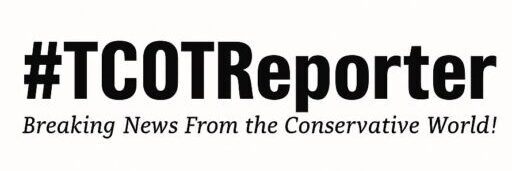The Green-Crescent Convergence: How Toffler’s darkest forecast is showing up in the Democratic coalition’s new marriage of moral politics and militant grievance
In 1990, futurist Alvin Toffler warned that when the radical environmental movement and religious fundamentalism ever found common cause, the result would be “a combustible convergence of forces that could blow up in the face of democracies wherever they now exist.” He described it as “a racist or tribal, eco-fascist, theological state … a Dark Age package.” Thirty-five years later, Toffler’s thought experiment is starting to look like a party-platform meeting.
The modern Democratic coalition has become the test case for a phenomenon Toffler saw forming at the edges of industrial collapse: an alliance between moralized movements that have little in common ideologically but share a sense of cosmic grievance. One speaks in the language of global justice and carbon guilt; the other, of colonialism, faith, and liberation. Both translate political goals into moral absolutes—and both now occupy the same street corners, social-media loops, and campaign field offices.
I. From Detroit to Doha: how two narratives merged
The immediate catalyst was Gaza. After October 7 and Israel’s military response, the internal stress lines within the Democratic Party hardened into a measurable bloc: a “cease-fire caucus” on Capitol Hill, a hundred-thousand-vote protest campaign in Michigan, and a national network of Arab-American, Muslim, and left-progressive organizations unified around the single demand of cutting U.S. support for Israel.
In Dearborn and Detroit, Arab and Muslim voters turned “uncommitted” ballots into delegates—converting protest into negotiating leverage. In Congress, progressive Democrats filed resolutions “calling for an immediate de-escalation and cease-fire,” creating a moral firewall the White House could no longer ignore. By spring 2025, senior aides were flying to Michigan to meet community leaders who just months earlier had been picketing them. Power, as Toffler might say, had shifted.
“The old weapons of power—violence and wealth—are giving way to knowledge and organization,” Toffler wrote in PowerShift. “The ability to mobilize people’s emotions, their sense of right and wrong, becomes the decisive resource.”
The Democratic leadership, facing turnout risk in key swing states, responded the only way modern parties know how: with inclusionary optics and vague empathy. But the underlying exchange was unmistakable—access for alignment. The activists had supplied the bodies and the narrative energy; now they wanted policy.
II. The anatomy of a convenience marriage
The “Islamist” element here isn’t formal theocracy—it’s a worldview centered on anti-imperialism, moral hierarchy, and solidarity politics that blurs religious and secular lines. Its domestic carriers include civil-rights and Muslim-advocacy groups, campus alliances, and DSA chapters that frame Palestine, immigration, and policing as facets of a single system of oppression.
This intersects almost perfectly with the party’s environmental and social-justice apparatus—movements that already see capitalism and Western militarism as twin engines of planetary harm. The rhetorical plumbing was there; Gaza simply connected the pipes.
“At their extremes,” Toffler wrote, “these two movements may be converging to impose new restrictions on personal and political behavior … the eco-theologues and the religious revival alike breed ultras who would be happy to jettison democracy.” (PowerShift, p. 409)
What he called “eco-theologues” now appear as the moral wing of the progressive Left—climate activists, divestment crusaders, abolitionists—fusing moral urgency with political maximalism. Across the aisle, the Islamist current supplies the global narrative, the imagery, and the moral sanction of struggle. Together they form a coalition united less by program than by posture: the sense of fighting absolute evil.
III. The Toffler framework: information, identity, and backlash
Toffler saw three levers of power—violence, wealth, and knowledge—cycling through history. In the information age, knowledge (and by extension, narrative control) becomes the decisive currency. Movements that master moral communication outperform states that rely on bureaucracy and budget lines.
He traced Islamic fundamentalism’s rise to the collapse of secular modernizers in the twentieth century:
“Atatürk and Reza Shah Pahlavi … forced the mullahs to the back seat,” he wrote, “yet their corruptions and failures kept relighting the fires of religious fundamentalism … which erupted finally in the holy frenzy of Khomeini-ism, with its all-out attack on the modern world.” (PowerShift, pp. 403-404)
That fire, he argued, would lick outward wherever modernization faltered. Today it has found oxygen in Western liberal societies themselves—specifically within their activist ecosystems. The old third-world “liberation” narrative has fused with domestic identity politics, creating a transnational moral field where Islamism, climate crusading, and social justice share vocabulary and enemies: colonialism, capitalism, Zionism, patriarchy.
IV. Inside the new alignment
- Shared moral grammar. Both the eco-left and Islamist activism treat compromise as sin. Incrementalism is complicity; negotiation is betrayal. In campaign culture, this produces purity tests and expulsion rituals that make traditional coalition politics impossible.
- Institutional capture through access. Universities and NGOs now serve as the staging ground for moral authority. When campus encampments morphed into national protest networks, Democratic officials found themselves mediating between donors and demonstrators rather than setting the agenda.
- Policy leverage through guilt. The coalition’s power lies not in votes alone but in narrative veto—the ability to brand opposition as immoral. Environmentalists perfected this tactic on climate; pro-Palestine activists applied it to foreign policy. The pattern is identical.
- Tech-amplified zeal. Toffler couldn’t foresee Twitter, but he understood feedback loops: “Information accelerates conflict,” he wrote, “by feeding each side its own certainty.” (PowerShift, p. 511) Social media made certainty a currency, and movements fluent in outrage economics learned to spend it.
V. From moral politics to governance paralysis
For Democrats, the immediate consequence is a governance drag coefficient. Every policy—border enforcement, energy development, foreign aid—now triggers moral vetoes from one wing of the coalition or another. Each veto is justified in quasi-religious terms: salvation of the planet, liberation of the oppressed, redemption from complicity. As Toffler warned, “movements that define virtue in absolute terms cannot govern a plural society without coercion.” (PowerShift, p. 412)
The long-term risk is deeper: a cultural normalization of authoritarian empathy—the idea that freedom itself must yield to higher moral imperatives. This is the functional heart of both radical environmentalism and religious fundamentalism, and the hinge point where Toffler’s hypothetical “eco-fascist, theological state” stops being metaphor.
VI. How deep the fusion goes
Environmental absolutism now provides the economic blueprint: degrowth, divestment, redistribution, anti-industrial moralism.
Islamist activism supplies the geopolitical narrative: anti-imperialism, resistance, the moral right to disrupt.
Both agree that Western liberalism—its markets, militaries, and freedoms—is the enemy structure.
The fusion is still informal, but its effects are visible: city-level divestment drives that conflate fossil fuels with defense contractors; anti-Israel protests that adopt climate-march choreography; slogans that swap “from the river to the sea” for “keep it in the ground” without missing a beat.
“By themselves the eco-theologues might be dismissed,” Toffler cautioned. “But it is a mistake to view them as isolated.” (PowerShift, p. 409)
He called their eventual convergence “a new Dark Age package.” The label feels hyperbolic—until you watch modern activists chant prayers in one breath and policy demands in the next.
VII. The politics of borrowed zeal
Democratic strategists treat movements as turnout machines. But borrowed zeal carries interest. The activists who propelled Mamdani-style socialists into office now expect debt service in the form of divestment, boycotts, and ideological fealty. Every retreat invites denunciation; every concession breeds escalation. The result is a governing party perpetually negotiating with its own street wing.
This is precisely what Toffler meant when he wrote that power in the information age flows to those who can “discredit the legitimacy of the system itself.” Once legitimacy becomes negotiable, morality replaces authority—and the most morally certain faction wins.
VIII. What comes next
If history rhymes, the next phase will involve institutionalization: resolutions hardening into platform language, city ordinances aligning climate and foreign-policy divestment, and bureaucratic incentives rewarding moral signaling over measurable outcomes. In that environment, the Green-Crescent coalition doesn’t need a formal merger; it just needs bureaucratic inertia. Every memo written in moral vocabulary advances its agenda.
Toffler’s final caution reads almost prophetic:
“The crises of industrial society are producing not only new technologies but new theologies. If these should ever join hands, the liberal democracies will find themselves defending reason itself as a minority faith.” (PowerShift, p. 415)
We’re not there yet—but we’re close enough to hear the handshake.
Citations
- Toffler – PowerShift: Knowledge, Wealth, and Violence at the Edge of the 21st Century (1990)
- Congress.gov – “H.Res. 786 Calling for an immediate de-escalation and cease-fire” (2024)
- AP – “Biden aides meet in Michigan with Arab American and Muslim leaders” (Feb 8 2024)
- ABC News – “Michigan Muslim, Arab leaders rebuff Biden campaign meeting” (Feb 2024)
- PBS – “Uncommitted wins two Democratic delegates in Michigan” (Mar 2024)
- Columbia Spectator – “Timeline: The Gaza Solidarity Encampment” (May 2024)
- DSA – “Until Palestinian Liberation” (Official Statement) (2024)
- Working Families – “Cease-Fire Tracker” (2024)
- The Nightly – “Colby orders AUKUS review to align with America First agenda” (2025)
- Reuters – “Pentagon denies Republican accusations it is shutting them out” (Nov 2025)


Pingback: Mamdani’s Political Taqiyya - #TCOT Reporter